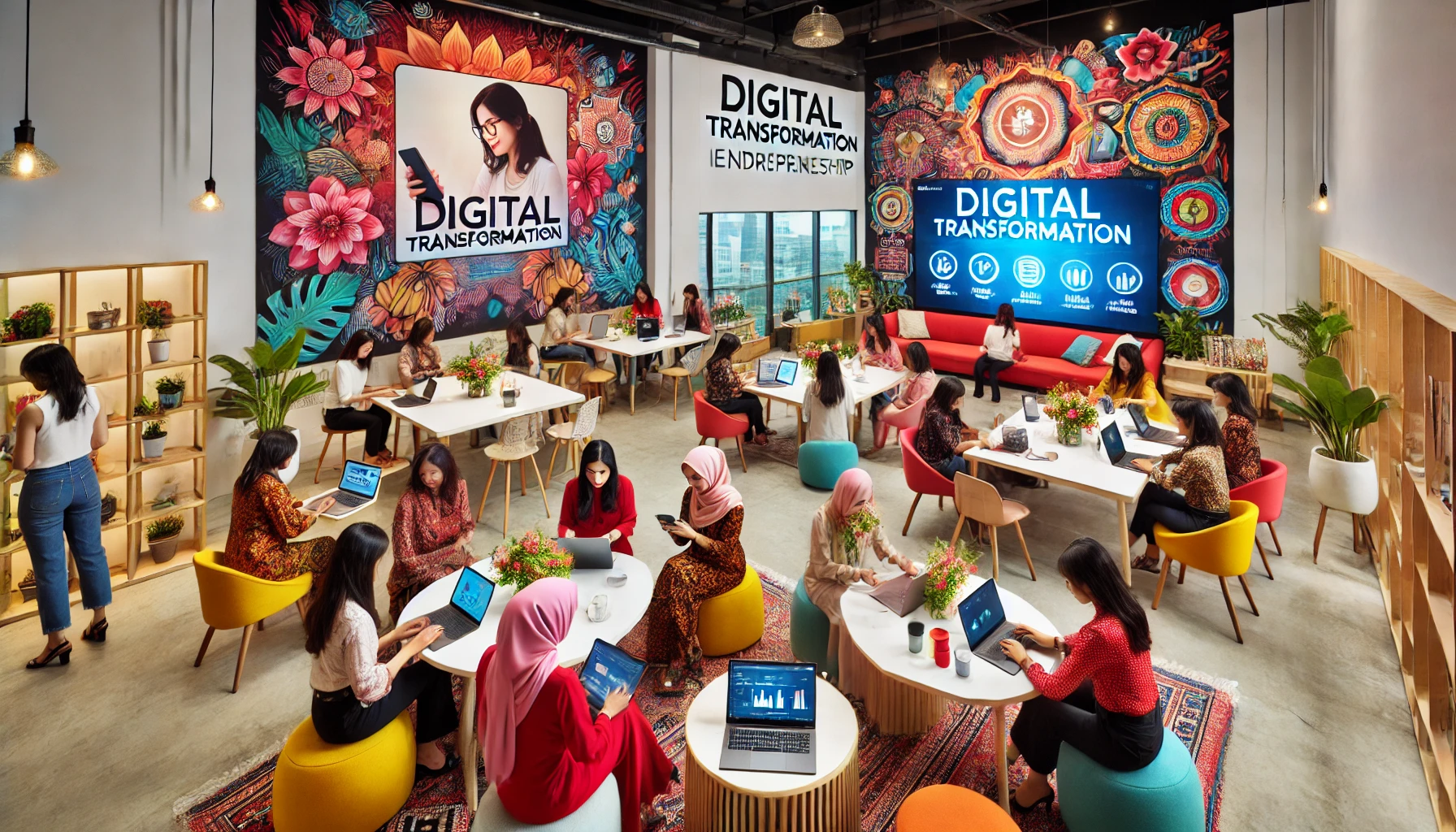Innovative Approaches to Digitizing Female-Run Businesses in Indonesia’s Economy
The "Women Wisely Doing Business" program, led by the World Bank and Kumpul, supported Indonesian female entrepreneurs in adopting digital tools to enhance business growth and efficiency. The initiative highlighted the transformative potential of digital technologies while addressing barriers like limited skills and access to resources, offering a scalable model for economic empowerment.

The World Bank’s East Asia and Pacific Gender Innovation Lab, in collaboration with Kumpul and supported by Microsoft Indonesia, conducted a groundbreaking study to help female entrepreneurs in Indonesia adopt digital technologies. The research sought to address barriers that women face in digitizing their businesses, including limited skills, restricted access to capital, and less diverse networks. These constraints often hinder women-led micro, small, and medium enterprises (MSMEs) despite the vast potential of digital tools to expand market access, reduce mobility limitations, and enhance efficiency. Against the backdrop of Indonesia’s thriving digital economy, which is among the largest in the world, the program aimed to demonstrate how digital transformation could empower women and contribute to economic equity. Notably, closing the gender gap in Indonesia’s MSME sector could generate an estimated $428 million in annual economic benefits, underscoring the importance of targeted interventions for female entrepreneurs.
The Women Wisely Doing Business Program
The core of the study revolved around the "Women Wisely Doing Business" program, launched in October 2022 by Kumpul with Microsoft’s support. Designed to address the unique needs of women entrepreneurs, the program offered a comprehensive digital training model that included online modules, virtual mentoring, and business-to-business (B2B) networking opportunities. Entrepreneurs could choose from nine self-paced modules that covered basic digital skills, financial bookkeeping, social media marketing, and balancing household responsibilities with business demands. Over 3,500 women accessed the training by mid-2023, demonstrating its reach. A subset of the most active participants also received virtual mentoring in small groups led by successful SME owners, allowing for focused discussions on business challenges. Additionally, B2B sessions featured partners like TikTok and Dana, offering insights into how digital tools could be integrated into daily operations.
Insights from Participants
The program attracted a cohort of well-educated entrepreneurs, most of whom operated micro businesses in the manufacturing sector, particularly food and beverage production. Participants extensively used social media platforms such as WhatsApp, Instagram, and Facebook for marketing and customer engagement. On average, they used three social media platforms and posted regularly to connect with their target markets. Despite these efforts, more advanced practices like targeted advertising and paid promotions remained underutilized, with only 22% of participants employing these strategies. Similarly, while 78% used digital tools to connect with suppliers, few leveraged them to optimize supplier relations or improve inventory management. Quantitative data revealed that participants employed 57% of good business practices, with advertising and promotional offers being the most common. However, gaps in advanced digital adoption persisted, suggesting opportunities for more tailored support.
Challenges and Opportunities
Feedback from participants highlighted the program’s strengths and areas for improvement. Many women appreciated the flexibility of online modules, which allowed them to balance training with household and business responsibilities. The option to revisit recorded sessions enhanced knowledge retention and application, especially for those juggling multiple roles. However, some participants, particularly older ones, faced challenges with internet connectivity and navigating the platform. There was also a clear demand for in-person components, as many believed these could improve focus and networking opportunities. Popular modules included social media marketing and financial management, but participants recommended adding topics such as supplier relations, targeted advertising, and profit margin optimization to future programs.
The program’s impact was evident in improved financial management, customer relations, and confidence in using digital tools. Many participants reported practical changes, such as separating personal and business finances, adopting digital payment methods, and engaging customers more effectively. However, some felt the program lacked the intensity needed for transformative business growth. Suggestions for future iterations included incorporating interactive exercises, diagnostic tools, and accountability measures like action plans.
Expanding Future Programs
Looking ahead, the study identified several opportunities to refine and expand the program. Integrating in-person activities with online training could address the need for deeper engagement and structured learning. For example, in-person forums could facilitate peer networking and allow participants to learn from one another’s experiences. The inclusion of hands-on exercises, quizzes, and interactive elements could further reinforce learning and encourage participants to apply new concepts directly to their businesses.
Additional content was also recommended to address gaps in digital adoption. Topics such as supplier management, advanced online marketing techniques, and managerial practices could enhance the program’s relevance and effectiveness. Expanding outreach to less educated entrepreneurs and underrepresented sectors like services and accommodation was another priority. Strategies to achieve this include promoting the program through offline channels, such as trade unions, government offices, and women’s organizations.
Ultimately, the study underscored the transformative potential of digital technologies for women entrepreneurs in Indonesia. By designing inclusive and scalable programs tailored to their diverse needs, stakeholders can unlock significant economic and social benefits. Closing gender gaps in the digital economy requires continued innovation and investment, but initiatives like the Women Wisely Doing Business program offer a promising blueprint for empowering women and fostering sustainable growth. This case study provides valuable insights into how targeted interventions can help women entrepreneurs overcome systemic barriers, driving equitable development in one of the world’s fastest-growing digital economies.
- FIRST PUBLISHED IN:
- Devdiscourse










